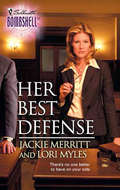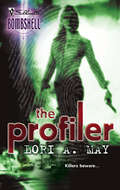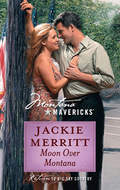Książki nie można pobrać jako pliku, ale można ją czytać w naszej aplikacji lub online na stronie.
Czytaj książkę: «Wild Rose»
Critical praise for
RUTH AXTELL MORREN
DAWN IN MY HEART
“Morren turns in a superior romantic historical.”
—Booklist
LILAC SPRING
“Lilac Spring blooms with heartfelt yearning and genuine conflict as Cherish and Silas seek God’s will for their lives. Fascinating details about nineteenth-century shipbuilding are planted here and there, bringing a historical feel to this faith-filled romance.”
—Liz Curtis Higgs, bestselling author of Whence Came a Prince
WILD ROSE
“The charm of the story lies in Morren’s ability to portray real passion between her characters. Wild Rose is not so much a romance as an old-fashioned love story.”
—Booklist
WINTER IS PAST
“[This book] inspires readers toward a deeper trust in the transforming power of God…. [Readers] will find in Winter Is Past a novel not to be put down and a new favorite author.”
—Christian Retailing
“[The] faith journeys are so realistic all readers can benefit from the story. Highly recommended.”
—CBA Marketplace
Wild Rose
Ruth Axtell Morren

MILLS & BOON
Before you start reading, why not sign up?
Thank you for downloading this Mills & Boon book. If you want to hear about exclusive discounts, special offers and competitions, sign up to our email newsletter today!
Or simply visit
Mills & Boon emails are completely free to receive and you can unsubscribe at any time via the link in any email we send you.
Here’s to you, Dad.
A “down-easterner” in spirit if not by birth.
And to Mom, who probably rejoiced as much as I
did when I got “the Call.”
Contents
Prologue
Chapter One
Chapter Two
Chapter Three
Chapter Four
Chapter Five
Chapter Six
Chapter Seven
Chapter Eight
Chapter Nine
Chapter Ten
Chapter Eleven
Chapter Twelve
Chapter Thirteen
Chapter Fourteen
Chapter Fifteen
Chapter Sixteen
Chapter Seventeen
Chapter Eighteen
Chapter Nineteen
Chapter Twenty
Epilogue
Prologue
Haven’s End, Maine, August 1872
Geneva felt the push from behind, a blow between the shoulder blades. The next instant she lay flat on her face against the rough, gray wharf, her toes caught in the spaces between the worn wood slats, her brimming baskets wrenched sideways. Helpless, she watched their contents scatter. The fruits and vegetables she’d taken such pains to arrange that morning in neat, concentric circles tumbled across the sun-bleached planks.
Heads of cabbage rolled like croquet balls off the edge of the wharf to land with a plop into the awaiting tide. The smaller items—the precious raspberries she’d handled so gently to prevent bruising and the bright green string beans—disappeared down the cracks to join the bobbing cabbages below. The shriek of gulls mingled with the cackle of laughter around her, as the birds were alerted to the treasures floating on the sea.
“Salt Fish Ginny! Salt Fish Ginny! How come you’re so skinny?” The teasing chant resonated above the laughter. “Salt Fish Ginny! Dirty as a hog, mean as her dog!”
Geneva glared at the trio of village boys stampeding by her, shouting the hated words that described her occupation, fishing for cod.
She forgot the boys as the thump of footfalls farther down the wharf reached her ears. Her glance passed the pranksters to the group turning down the wharf from the street. Rusticators! Her face flamed in humiliation as she watched the smartly dressed ladies and gentlemen on holiday, the very ones who bought her produce, stroll down the pier from the quaint, white clapboard village.
Before she could do more than pull herself to her knees, they had reached her, and stood hesitating as if looking for a way to pass through the mess. Wrinkling their noses, the ladies lifted their skirts to avoid soiling them.
Only one gentleman moved. His boots resonated against the wood, but as soon as Geneva saw who it was, her heartbeat muted the sound. She stared openmouthed as Captain Caleb Phelps came and knelt beside her. She had never been in such close proximity to him before.
Geneva found herself looking straight into the bluest pair of eyes she’d ever seen. They were the blue of the open ocean off Ferguson Point after the morning fog burned off and when the noon sun hung high overhead. Not a cloud diminished the hue of the vast, flat expanse of sea then, but its inky blue depths sparkled with a thousand lights and depths from the reflecting sun.
Captain Caleb’s eyes danced with a mixture of concern and amusement. It wasn’t the sly amusement of the onlookers, she realized, but a companionable sort, as if he and she were sharing some private joke. His eyes’ wry twinkle was telling her that he had been in a similar predicament in another time and place, long ago enough to look back with humor.
Geneva blinked to break the spell. Don’t be a fool. Captain Caleb didn’t care what she was thinking. His world was so far removed from hers, it might as well be across the sea. She needed to get back on her feet and quick. There’d been enough damage done already, and she had to see what she could salvage.
But her commands didn’t reach her legs. Geneva caught sight of the untidy patchwork on one threadbare knee of her overalls and suddenly became conscious of her appearance. She cringed in shame at the contrast between the man’s easy elegance and her own homespun looks. The seams of her pa’s old flannel shirt were visibly frayed, the color faded from numerous washings.
Geneva glanced down at the hand the captain placed on her forearm. Despite the tanned skin, it was the hand of a gentleman. His fingernails were clean and neatly trimmed. She curled her own hands into fists to hide the broken nails, traces of garden dirt still clinging to them.
“Are you all right, miss?” After a cursory glance over her as he asked the question, his gaze returned to her face.
Miss. It sounded so respectful. He might be talking to a fragile, young lady.
Geneva nodded and mumbled something, hardly believing what she was experiencing. For the first time, a man wasn’t undressing her with a look. No matter how oversized her pa’s old shirts or thick the bib of her overalls, they never did enough to flatten her bosom. Everywhere else she was bone thin, an unfortunate circumstance that only served to make the fullness of her chest more apparent.
Geneva flushed, meeting the intense indigo gaze focused on her. Captain Caleb scarcely gave her body a glance. He seemed to look beyond her features to the person within.
Although the captain’s face was one she recognized, she’d only seen it two or three times in her life, from afar. “Cap’n Caleb,” as he was known in these parts, hailed from Boston and rarely came to port in Haven’s End.
Geneva couldn’t help staring at it now, from the deep chestnut-colored hair brushed back from the bronzed forehead, to the strong jaw and rugged cleft chin, every feature in perfect proportion as if the artist’s hand hadn’t faltered once in executing his work.
Not like her uneven features: too-sharp nose, eyebrows arching like bird’s wings across her brow, stick-straight dark hair and eyes black as pitch, attesting to her half-breed status.
She broke away from his grasp and pushed herself to her feet. Taking a step away from him, she forced herself back to the situation at hand. Her heart sank as she contemplated the wreckage around her. Well, it would do no good to cry about it.
She stooped to gather her baskets, but was stopped by Captain Caleb’s firm grasp. He spoke with a tone of authority so different from the one he’d used with her, she had to look twice to make sure it was the same man speaking.
“Come here, lads, and rectify the damage you’ve inflicted on the lady.”
The boys hooted at this. “But, Cap’n Caleb, that ain’t no lady,” one of the boys protested. The others doubled over in amusement at the very thought. “That’s Ginny. Salt Fish Ginny!” Their laughter was joined by the discreet titters of the ladies and gentlemen still standing there.
Geneva wished the planks beneath her feet would widen enough to let her through so she could join her vegetables on the incoming tide. Of all the people to witness her disgraceful fall and hear that odious nickname, why did it have to be Cap’n Caleb?
“Young men—” the voice grew softer “—if I have to repeat my request, you’ll find yourselves floating alongside those lettuces down there.”
“Yessir,” the trio mumbled, shuffling forward.
“Wait,” he added. “Apologize to the lady first.”
Their eyes looked just about ready to pop out of their heads. Under other circumstances, Geneva would have laughed out loud at their amazement.
The boys bobbed their heads, each in turn. “Sorry, Ginny.” “Beg pardon, Ginny.” “No offense, Ginny.” Then, their natural exuberance restored, they bent to collect what remained on the dock. Geneva, stunned by what had just occurred, stood motionless. When she recovered from her surprise and moved to help, the captain’s grip tightened on her arm.
The boys finished quickly. Proudly, they handed her the two baskets, only half full now, the bruised and battered fruits and vegetables a jumble. Geneva took them without a word, anxious to be out of sight as quickly as possible. She’d forget her deliveries in the village today, and continue on up the coast, where no one would know of the incident.
But she wasn’t allowed such a quick retreat.
When everything was set to rights to his satisfaction, Captain Caleb turned to her and took off his cap. “Caleb Phelps, at your service, as you can see.”
He smiled, and the warmth of his smile gave her the sensation she was the only human being worth knowing on the face of the earth. Now she understood why everyone in the village thought so highly of him and had nothing but good to say about “Cap’n Caleb” whenever he came to port.
“Whom do I have the pleasure of assisting?”
He was asking her name! “Geneva Patterson,” she croaked, her throat so dry that she didn’t know how she managed the syllables.
By this time, a pretty young lady came to stand beside the captain, taking his arm as if it was her rightful place to do so.
He turned to her, his voice tender. “Arabella, may I present Miss Geneva Patterson? My fiancée, Miss Arabella Harding.”
The blond woman was dressed in a light blue suit that matched her eyes. “Pleased, I’m sure.” Her glance slid off Geneva before she turned her attention back to the captain. “Caleb, we must be on our way while the day is so pleasant.”
Geneva dodged aside before the captain could say anything more to her. But he reached out one last time, detaining her by holding the handle of one basket.
“I’d like to purchase these from you.”
Geneva stared down at the crushed raspberries staining the wilted radish tops and lettuce leaves.
“How much are the two baskets worth?” He was already reaching inside his jacket to pull out his wallet.
Geneva shook her head, horrified at the completion of her shame. She backed away, bumping against a piling just in time, before she toppled over the edge of the wharf like her produce.
“I don’t mean to offend you, Miss Patterson. I realize you won’t be able to deliver them wherever you had originally intended—”
“They’re not for sale. Thanks just the same, Cap’n.” She stumbled toward the ladder and, reaching it, scurried over the side, afraid the captain would insist further.
Geneva dropped the baskets into her boat, not caring what tumbled out now. When she climbed back up the catwalk to free her line, she saw the captain and his betrothed standing where she had left them, their backs to her.
Miss Harding’s cultivated tones reached her ears. “Caleb, sometimes your sense of chivalry goes too far. What possessed you to aid that creature? I could hardly distinguish whether it was a man or woman. She looked perfectly capable of picking up that dirty rubbish herself.” Miss Harding’s back shuddered.
Geneva watched the impeccably dressed young lady clutch the captain’s arm more closely as she propelled him back toward their friends. Miss Harding’s soft laughter floated to her. “That poor thing. She’ll probably dream of your attentions for weeks.”
Geneva didn’t wait to hear the captain’s reply, but slipped back down the catwalk, unable to bear it if she heard an answering chuckle. She jumped into the boat. Unmindful of its rocking, she set the oars in the pins, pushing one against a barnacle-encrusted piling to shove herself out into the harbor as quickly as possible.
The memory of Miss Harding’s words burned on Geneva’s heart like lye as she recognized the prophetic truth of them.
Chapter One
Haven’s End, June 1873
The door to Mr. Watson’s general store banged shut behind Geneva. She paused a few seconds at the door to give herself time to adjust to the dim light. The sweeter smells of spices, tobacco and new leather mingled with the more pungent odors of pickling barrels, hard cheeses and salted fish.
Three women leaned over one end of the long counter that ran the width of the store, examining lengths of ribbon and lace. At the sight of Geneva, they drew in their ranks, as if afraid of contagion in such close quarters. Used to such a reaction to her presence, Geneva ignored them and strode to the opposite end of the counter. She would state her business and leave as quickly as she had come.
Leaning her hands against the counter, she drummed her fingers lightly against the scarred, wooden surface.
“What can I do for you, Geneva?” Mr. Watson approached her with a smile.
Geneva didn’t smile back, lest she give the storekeeper any encouragement. Suspicious of the teasing look in his eyes, she deemed it best to keep him at a distance.
“I’ll take two dozen long nails.”
Mr. Watson slapped the counter with his palms. “Two dozen nails it’ll be.”
When he turned his back to her to rummage in the keg, Geneva could hear Mrs. Bidwell’s voice at the other end of the store.
“I hear tell he begged and pleaded with his intended to forgive him.”
Geneva glanced toward the speaker, whose bonnet nodded up and down, giving the impression she had been in the very room at the time, an eyewitness to the scene she was describing. Her listeners seemed to think so, too, the way they drank in her words.
“Poor Miss Arabella Harding must have been brokenhearted.” Young Annie Chase, who was engaged to one of Mrs. Bidwell’s boys, expressed this opinion. “Such a pretty woman. So ladylike.”
At the name, Geneva’s fingers stopped their drumbeat against the countertop. She’d never forget that name. Nor the way Captain Caleb had looked at its owner when he’d introduced her, as if she were an angel.
Annie was soft-spoken, and everything she said came out sounding tenderhearted. “I don’t know what I’d do if my Amos ever did anything dishonest like Captain Caleb.” She hugged herself. “But Amos would never dishonor his family name in such a despicable manner.”
“Of course not! Amos would never do any such thing,” his mother answered, aghast at the mere notion. “He hasn’t been brought up that way.”
Geneva could feel every fiber in her body poised to attack. What gave these biddies the right to pass judgment on Captain Caleb? She bit her lip, holding in her anger, when Mr. Watson set the nails down in front of her.
“These long enough?”
She glared at him, as if he, too, were guilty of blaspheming her sacred memory of the captain.
“Anything else?”
She shook her head, her reasons for being in his store pushed aside by the more pressing matter of Captain Caleb’s reputation.
“How could anybody be so foolish?” Mrs. Bidwell’s voice carried the clearest. Geneva knew she prided herself on her opinions, and she gave full voice to them now. “Embezzling company money! Didn’t he think he was going to get caught? He was Phelps’ heir. Had everything he could wish for. If anyone was ever born with a silver spoon in his mouth, it was Caleb Phelps III. To go and steal from his own father! Why, it’s wicked!”
The thudding between Geneva’s temples drowned out their voices. She was sick and tired of hearing the captain gossiped about. It seemed she couldn’t come into the village anymore without hearing the accusations hashed and rehashed. Didn’t people have anything else to talk about?
“He had to pay for that big, fancy cottage on the Point,” Mrs. Webb reminded the others. “The old farmhouse wasn’t good enough for him. Oh, no. He had to tear that down. He probably ran short of money to pay for it all.”
Mr. Watson looked toward the women and gave a chuckle. “I hear Phelps Senior’s a mite close to the bark. I figure he kept young Phelps on a tight leash with his salary. The young captain probably got impatient, wantin’ to give that pretty Miss Harding all that money can buy. After all, he had to fight off her other suitors. She was the belle of Boston, I hear.”
Geneva told herself to turn around and march out of the store, but her feet seemed stuck to the floor with spruce gum.
Mrs. Webb tapped the counter with a large knuckled forefinger. “That doesn’t excuse what he did. If he was short on money, he should have gone straight to his father. What did he do with all the money he earned as a captain? Look at our own captains—they live well on their shares the rest of their lives.”
Mrs. Bidwell sniffed. “They don’t squander their wealth on extravagant living. I saw the wagon-loads on their way to the Point to build that grand summer cottage of his. Cap’n Caleb only bought the best for his place. No hand-split shakes for his roof. Only slate all the way from Wales. And the glass! Enough panes you’d think he was going to live in a greenhouse. Mahogany shipped in from Santo Domingo. And that’s not sayin’ a thing about his residence in Boston. He overreached himself, all right!”
“I hear he up and left everything in Boston.” Mrs. Webb snapped her fingers. “Just like that. If anything’s proof of guilt, it’s running. Now he’s buried himself up in that mausoleum. Thinkin’ he can hide himself here.” She sniffed. “We’re honest, God-fearing folk. He’ll find that out in short order.”
Mr. Watson nodded. “What I always say is, money’s the root of all evil.” He wrapped up the nails in brown paper. “That’ll be twelve cents,” he told Geneva, then turned back to the ladies. “You know how rich folks think they can be above the law, but things have a way of catchin’ up with ’em.” He gave a final nod of emphasis.
Geneva slapped her coins onto the counter. Mrs. Bidwell opened her mouth to speak. Before she could draw breath, Geneva turned to the three women, hands on her hips, her back straight, her eyes narrowed.
“Poor folks seem to think they’re above mindin’ their own business. Guess they’ve never heard gossipin’s a sin just like stealin’. Nor ’bout hittin’ a man when he’s down, even though he’s never done nothing to them. I seem to recall just a while back, nothing but praise for Cap’n Caleb. Now he’s tarred and feathered with your tongues when no one knows what really went on down there in Boston. Why, he’s never treated any one of us but kindly and fairly, even some that don’t deserve it!”
She glared at each one in turn. They stared at her, their jaws slack. These women probably hadn’t ever heard her say so much all of a piece. Deciding the sooner she was away from these old harpies the better, she turned back to Mr. Watson.
Stifling the urge to tell him to wipe the smirk off his face, she picked up the parcel of nails. “Good day to you!”
She shoved away from the counter. It was then she noticed the silence. Not one of the women had said a word, not even the outspoken Mrs. Bidwell. In fact, they weren’t even looking at her. Everyone was staring at the door.
Slowly Geneva turned. There, his dark form silhouetted against the sunshine of the open doorway, stood Caleb Phelps. She couldn’t make out his features, but she could feel his gaze on her, as intense as it had been that day last summer.
Hugging the parcel to her chest as if it might conceal the workings of her heart, Geneva took a step forward, then another. The pounding of her heart was so loud, he must surely see the bib of her overalls flapping up and down clear across the store. She kept on marching until she reached the captain’s looming figure. She’d forgotten how tall he was, a good head above her, and she was as tall as several men of her acquaintance.
He moved aside just as she approached and tipped his hat to her as she passed. Touching her own hat briefly at the brim, she lunged through the doorway into the sunshine. She took the steps down two at a time, her boots clattering on the rickety wooden planks.
Why was it that every time she ran into the captain, she felt compelled to flee afterward, as if she were guilty of something?
Caleb Phelps turned toward the banging screen door, the only sound in the small village store. He watched the long strides of the overalled figure taking her rapidly away from the store and toward the wharf.
Only her voice gave her away as a woman.
In the couple of weeks he’d been back to Haven’s End, he’d felt a distinct chill every time he was in the presence of the villagers.
Funny how quickly bad news traveled. He had thought he’d become inured to suspicious looks—or worse, those self-righteous, smug expressions that said more clearly than words, Well, he got his just deserts! He’d certainly endured enough of them in Boston.
Somehow he’d thought this little village where he was scarcely known, but where he’d always had pleasant if superficial dealings with the residents, would welcome him differently.
The woman’s harsh words to the villagers rang in his ears. She’d expressed more clearly than he ever could exactly what he’d felt.
Strange, how belief in one’s integrity could come from the strangest quarters. What did she know of him or of events in Boston?
From her yard farther up the road from Ferguson Point, through the thin screen of hackmatack trees, Geneva watched her new neighbor with a frown. Ever since Captain Caleb had begun to turn the soil in a portion of his yard, she’d started to worry. When it became clear he was making a garden, her concern deepened. As she hoed her own young plants, she fretted that her neighbor wouldn’t have the same success, not knowing the land in these parts.
“If I was plantin’ a garden on the Point,” she told her black Labrador, Jake, “I’d make it on the other side. For one thing, it’d get sun there the whole day. I remember Pa telling me there used to be a chicken yard nearby, so the soil’ll be rich over yonder.”
She banged her buckets together. “Ain’t none o’ my business what he does. Even if nothin’ comes up, he won’t go hungry. Isn’t as if he depends on his garden to live, like most of us.”
But no matter how much she debated with Jake over the next few days, Geneva couldn’t help observing Captain Caleb each time she went outside. And the longer she watched him bent over his fork, the more she itched to offer her advice. He had helped her out of a mess once. She told herself she owed it to him.
Finally, making up her mind, she threw down the pump handle. “No, you stay here,” she told Jake. “Don’t need you scarin’ him before I can get a word out.” She wiped her hands down the sides of her trousers and headed for the dirt road. When she saw Jake at her heels, she stopped once again and shook a finger at him. “Now, do I have to chain you up, or are you going to obey?”
The dog whined, but after another stern look from Geneva, he stayed put. Her tone softened. “That’s a good fellow. I knew I could count on you.”
She walked down the sloping dirt road to the end of Ferguson Point, where a gate stood. The newly erected barrier, the lumber still raw and unpainted, matched the house beyond it. Together, house and gated fence stood out like intruders against the familiar landmarks of the Point. Geneva’s gaze swept the vista before her, never tiring of it. She’d always thought this the best location in all Haven’s End.
A large expanse of cleared land descended toward the sea. Below was a sheltered cove with dark, rocky cliffs curved around, protecting it from the open sea. Tall, ancient firs and spruce, their long, thin peaks looking black against the sky, grew down to the very edge of the cliffs, like multi-tiered sentinels standing guard against the sea.
Above the cove, where there had once been an old, abandoned house, now stood an imposing, new structure. Despite its freshness, there was something sad about it, Geneva thought as she observed the overgrown grass in the yard. It wouldn’t take long for the bright reddish-brown luster of the cedar shingles to take on the faded gray of her own shack. The curtainless windows stared back at her like empty eye sockets.
Shaking aside the morbid thought, Geneva opened the forbidding gate. Spying her target at the far side of the yard beyond the barn, she walked resolutely toward the new owner of Ferguson Point.
The captain squatted by the half-turned garden plot, a clod of dirt and grass held in one hand. He was studying this as if it held the answer to a mystery.
Already she regretted coming. What in the world was she going to say to him now? So she stood, not saying a word, until he raised his head. His initial glance was startled, but it quickly changed to one of suspicion.
He sat back on his heels, pushing his hat away from his eyes to observe her. The sun shone full on his face, and Geneva struggled to hide her shock. Was this the same gentleman who’d helped her last summer? It wasn’t just the absence of a smile, but the complete lack of welcome. His dark hair hung long and shaggy over his collar, his jaw shadowed with several days’ growth of beard. Sweat and dirt stained his shirt. Only the color of his eyes remained unchanged—the same hue of the ocean.
But now they were no longer crinkled at the corners with mirth, but narrowed in bitter distrust. They gave her no encouragement to proceed.
Well, she was in for it now. Best have her say and be done.
“Be lucky to get much of anything to grow here.” She kicked a clump of dirt with the toe of her boot.
After several seconds of silence in which Geneva wasn’t sure whether he was going to order her off his land or just plumb ignore her, he answered in a quiet voice, each word carefully modulated as if he was holding on to his patience with an effort. “Why is that?”
Geneva made an abrupt gesture with her hand. “Poor soil.” She jerked her head sideways. “Get half day’s shade from those trees.”
She watched him swallow as he digested her words. By the set of his unshaven jaw, she could tell he was having a hard time just being civil to her.
“Where do you propose I plant?”
She moved her chin forward. “Over yonder.”
The captain turned his head in the direction she indicated, his mouth a stern line.
“Why?”
“My pa used to tell o’ folks had a turnip patch there. Fine soil, full sun the whole day. Used to be a chicken yard right next to it. Lots o’ manure.” When he didn’t reply, she made another motion with her chin. “You’re late plantin’. Short growing season ’round here.”
He turned back to her, giving her a look that told her he welcomed her advice about as much as he would a skunk under a house.
“I’m certainly obliged to you for telling me at this late date that I should abandon one field for another that looks identical to it.” He threw aside the clump of turf he’d been holding and took a deep breath, as if continuing the conversation was an effort.
“I realize I’m nothing but a sailor who doesn’t know a spade from a hoe, but I didn’t have much choice about planting time.”
She’d been right—he didn’t know a thing about gardening. She kicked at the dirt again. “Awful shame. But ’twouldn’t take you long with two people. I’ve already planted my garden. Could come over here tomorrow morning and help you till up yonder.”
He let out a breath—whether in annoyance or amusement, she couldn’t tell. “Are you proposing to help me dig up a field of the toughest, most rock-ridden sod I’ve ever encountered in my life?”
She went on as if he hadn’t spoken. “If we prepare the soil good, I can give you some o’ my seedlings. Have more’n I can use, anyway. That’ll make up for lost time.”
He paused as if considering. “That would be very generous of you.”
She hurried on, afraid he’d change his mind. “You can still plant carrots, taters, squash, beans, greens.” She nodded. “It’ll do you for the winter.”
“In that case, you’ll probably have to show me how to put them up as well,” he replied, the first hint of a twinkle beginning to thaw the chill in his eyes. Geneva felt something inside her begin to melt, too, and felt a profound relief that the man she remembered had not disappeared entirely.
A second later his eyes resumed their coldness. “I’ll let you know when I’m ready to plant.” He stood and, once again, she was conscious of his height.
He picked up a fork. “By the looks of it, I have a few days of hard labor ahead, so if you’ll excuse me…” Without waiting for her reply, he began to walk toward the field she’d indicated.
“I’ll come by tomorrow to help you with the tilling,” she muttered to his back.
He heard her and turned around. “I will not have a woman wielding a fork alongside of me.” He enunciated like a teacher to a stubborn pupil.
“Suit yourself. If you want to be a fool, ain’t no concern o’ mine.”








